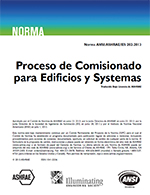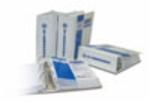Description
Track: Standards, Guidelines and Codes
Sponsor: 3.6 Water Treatment, Environmental Health Committee, SSPC188
Chair: Joshua Ince, P.Eng.,Member, Eldon Water Inc, West Chester, OH
This session reviews the most current and recent codes and regulations pertaining to Legionella and building water safety, how to follow and adhere to these regulations and discuss how effective they are. The expert panel answers questions pertaining to why these regulations are required to control Legionella, strategies for executing management plans to comply with codes and regulations and discusses which codes and regulations have had the greatest impact for the management team and improving water safety.
1. Where Legionella Lurks in Building Water Systems: How Codes and Regulations Seek to Control Amplification
Janet Stout, Ph.D., Associate Member, Special Pathogens Laboratory, Pittsburgh, PA
The aim of regulatory documents is to manage the conditions within potable and utility water systems that allow uncontrolled growth of this bacteria. This session provides you with a unique perspective – Legionella’s perspective. Understanding the water systems from this vantage point will enable owners and managers to effectively manage these systems, understand previous failures, set achievable goals and to have greater success in controlling the growth of this waterborne pathogen.
2. Water Safety Plans, Who Does What? The Role of Water Treatment, Engineering and Facility Management
William Pearson, Member, Special Pathogens Laboratory, Pittsburgh, PA
For almost four decades, the facility manager, the engineer and the water treater were essentially without any specific or enforceable Legionella-related building water safety codes, regulations or published Standard (of care). The past two years have seen significant change, starting with the June 2015 publishing of the first US (Legionella) Standard, ANSI/ASHRAE 188, quickly followed by regulations enacted in NYC and NYS following an outbreak of Legionnaires’ disease in the South Bronx and with a June 2017 directive from CMS (Centers for Medicare and Medicaid Services) that spells out very specific Legionella-related building water safety policies and procedures requirements.
3. Legionella: The Drive for More Effective Codes
Tim Keane, Member, Legionella Risk Management Inc., Chalfont, PA
With ASHRAE Standard 188 published and supported by CDC as well as others, CMS finally weighed in and immediately required all healthcare facilities including all hospitals and nursing homes in the US to have a Legionella risk management plan. This is a huge change from where we were just three years ago. So what’s next? What other codes will this replace, what other codes will need to change and what will be the effect on design engineers.
Presented: Monday, January 22, 2018, 8:00-9:30 AM
Run Time: 90 min.
This is a zip file that consists of PowerPoint slides synchronized with the audio-recording of the speaker (recorded presentation), PDF files of the slides, and audio only (mp3) for each presentation.
Citation: ASHRAE Seminar Recordings, 2018 Winter Conference, Chicago, IL
Product Details
- Published:
- 2018
- Units of Measure:
- Dual
- File Size:
- 1 file , 100 MB
- Product Code(s):
- D-CH18Sem19




